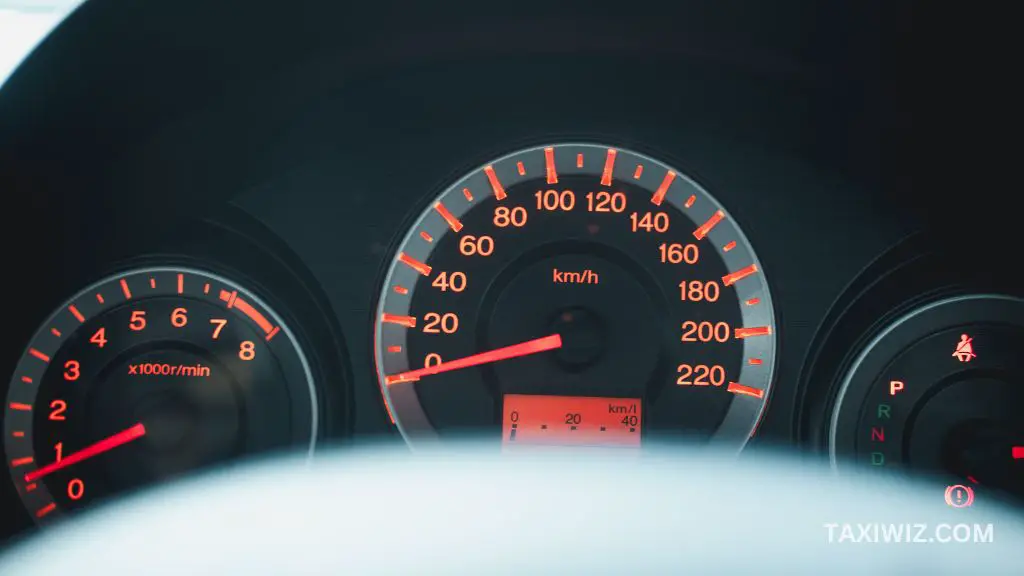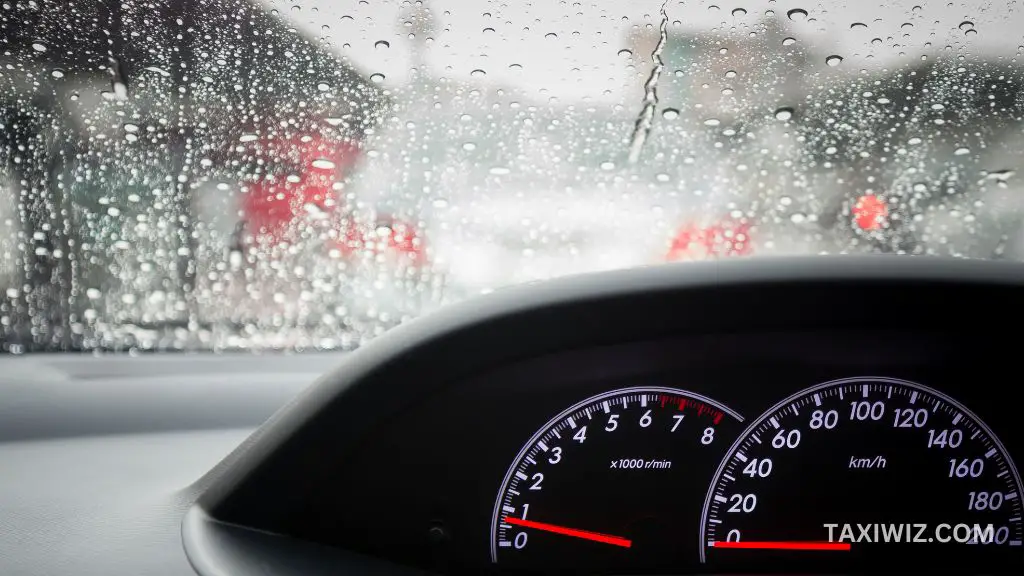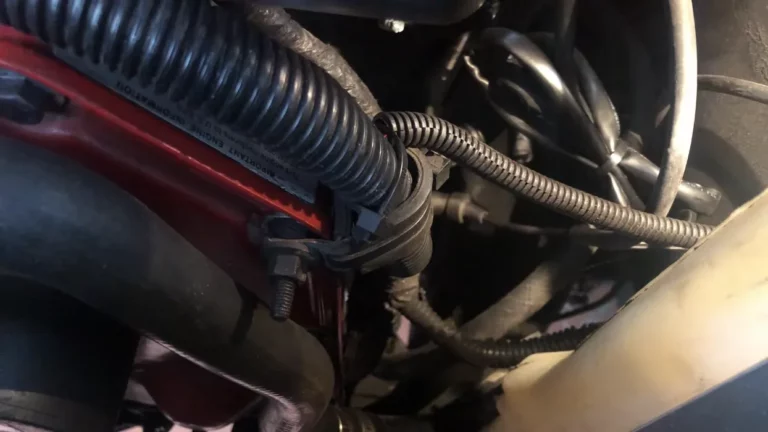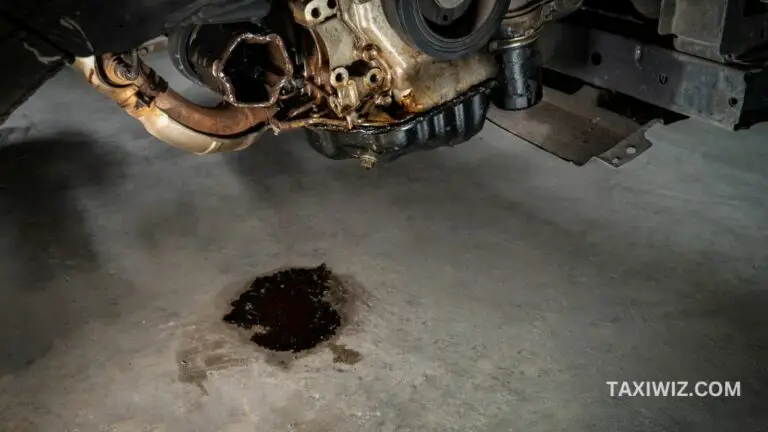All Gauges Drop To Zero While Driving – Reason, Sign & Fixes!
Everyone knows how big of a role gauges play in any vehicle. If all gauges drop to zero while driving, it can be quite daunting.
The loss of these vital indicators can create concern and uncertainty for the driver. Here is a list of the most common reason for All Gauges Drop To Zero While Driving that you should be aware of:
- Blown Fuse
- Overloaded Circuit
- Bad Sensors
- Stripped Gear
- Loose Connectors
- Defective Instrument Cluster
- Grounding Problem
Here, you will get to know about all the possible reasons that can cause this situation to arise. We’ll also go through the many steps you can take to overcome this situation on your own.
7 Reasons Why All Gauges Drop to Zero While Driving

It is important to identify the underlying cause and take appropriate action to find a solution. Let’s take a closer look at the various possible causes:
1. Blown Fuse
This is one of the most common causes of sudden gauge failure in most vehicles.
Sometimes only a specific part, such as warning lights, may not be working, indicating a blown fuse. To determine the exact cause, refer to your manual guide for valuable guidance.
2. Overloaded Circuit
A faulty voltage regulator or one that cannot handle the required voltage may lead to a situation where limited power is supplied to the vehicle’s instrument panel. This can cause a sudden drop in all gauges.
3. Bad Sensors
This issue typically affects one or two gauges, but it can also lead toa complete failure of all gauges.
Sensors may fail to recognize or provide inaccurate readings due to faults in the system. It is imperative to address this matter with a fitting solution to prevent further issues.
4. Stripped Gear
Non-functioning or poorly functioning speedometers and odometers can result in stripped gears.
The gauge defect may be due to broken cables or wires. In this case, physical cables are used instead of sensors in the car.
5. Loose Connectors
Connectors can become loose or disconnected due to various reasons such as vibrations, movements, accidents, and wear & tear, amongst other factors.
6. Defective Instrument Cluster
In case you have exhausted all other possibilities and still cannot find the cause, it may be necessary to inspect the instrument cluster itself.
A defective cluster can have incorrect wiring, faulty sensors, or broken cables. Electrical instrument clusters have individual gauges that receive independent inputs from specific senders, so they may need to be replaced promptly.
7. Grounding Problem
If none of the above reasons seem valid, it is worth investigating the grounding system.
Although it may not be the first consideration when faced with the sudden loss of all gauges, grounding problems can occur quite frequently. Take steps to rectify the problem before it escalates or affects other devices or systems.
Steps To Take If All Gauges Suddenly Drop to Zero
Here’s a breakdown of what to do, in case you are facing issues with the gauge dropping to zero while driving:
What Should Be Done If None Of The Gauges Are Functioning?
If all the gauges on your dashboard suddenly stop working, then these are a few steps you can take:
A blown fuse can trigger the gauges to stop working. The fuse box is usually located under the dashboard or in the engine compartment. Check for damage and replace it if needed.
If the wiring connections are loose or damaged, it can lead to gauge failures.
Inspect the wiring harnesses behind the instrument cluster and keep an eye out for any signs of irregularities. Once you identify the problem, repair or reconnect the wiring as per the requirement.
If the problem persists or you can’t locate the cause of the issue, then it’s best to consult a professional mechanic.
How To Address A Situation When A Specific Gauge Fails To Work?
If only a specific gauge isn’t working, while others are functioning properly, then the possible cause and solution can vary. Here are a few general steps you can take:
Examine the wiring that’s connected to the specific gauge to double-check if the issue if a loose connection or damage. Repair or replace the faulty wiring as required.
The gauge is reliant on the sensor to provide information, so at times it might be the sensor not functioning properly that leads to the gauge not working.
You may require the help of a professional mechanic to locate and test the sensor related to the gauge.
If everything you’ve tried didn’t help the issue then the gauge itself may be defective.
If that’s the case, then you will need to replace the gauge. Go through the vehicle’s manual for instructions on removing and replacing the gauge or consult a professional for help.
What Actions Can Be Taken If The Dashboard Warning Lights Are Not Functioning?
The warning lights on your dashboard not working could be a sign of a different issue. Here’s what to do if that’s the case:
- Check The Fuse
Similar to the gauges, the warning lights to are connected to a fuse. Check the fuse that’s connected to the warning lights and repair or replace it if necessary.
- Inspect The Bulbs
In some situations, the bulbs behind the warning lights may be burnt out. So, you will need to carefully remove the instrument cluster and examine the bulbs. If they are faulty, then replace them.
How to fix Engine Temp Gauge, Fuel Gauge, Speedometer and Tachometer (easy) >> Check out the video below:
How To Handle Gauges That Behave Erratically Or Have Pegged Needles?
If the gauges on the dashboard behave erratically or the needles get stuck at one end, it may indicate a problem with the instrument cluster. Here’s what you can do:
- Check The Wiring
Examine the wiring connections located behind the instrument cluster. Make sure that they are secure and not damaged. If you want any that are loose or not connected then reconnect them; if damaged, then replace them.
- Reset The Instrument Cluster
Sometimes, giving a simple reset can resolve erratic behavior. To do this, you will need to disconnect the vehicle’s battery for a couple of minutes and then reconnect it.
Is It Safe to Drive With No Gauges?

Driving without functioning gauges can be risky and isn’t recommended. The gauges provide vital information about the vehicle’s stats, such as speed, rotation per minute, fuel level, engine temperature, and other important metrics.
Without these gauges, you may be in the dark about the potential issues with your vehicle, which may lead to mechanical failures or accidents.
We’ll advise you to get your gauges repaired or replaced as soon as possible to safeguard your vehicle and yourself.
Frequently Asked Questions (FAQs)
1. Can a dead battery cause all the gauges to drop to zero?
A dead battery can cause electrical issues in a vehicle, however, it normally doesn’t cause all the gauges to drop to zero.
That said, if the battery goes into a complete failure, it may result in the instrument cluster losing power and leading to gauge failure.
2. Are there any temporary fixes for all gauges dropping to zero?
It is very rare to find temporary fixes for such issues, as it usually occurs due to significant underlying problems.
3. Can extreme temperature fluctuations cause all gauges to drop to zero?
Extreme temperature fluctuations alone won’t cause all the gauges to drop to zero. It can, however, potentially exacerbate existing electrical issues or trigger intermittent failures.
Final Words
To recap, Here is a list of the most common reason for All Gauges Drop To Zero While Driving that you should be aware of:
- Blown Fuse
- Overloaded Circuit
- Bad Sensors
- Stripped Gear
- Loose Connectors
- Defective Instrument Cluster
- Grounding Problem
If you face such issues, do not wait too long to examine the root cause of the problem and fix it.
Most of the problems that lead to this problem can be fixed in a DIY manner, that being said, do seek professional help if you aren’t able to fix it on your own.
Related articles:



